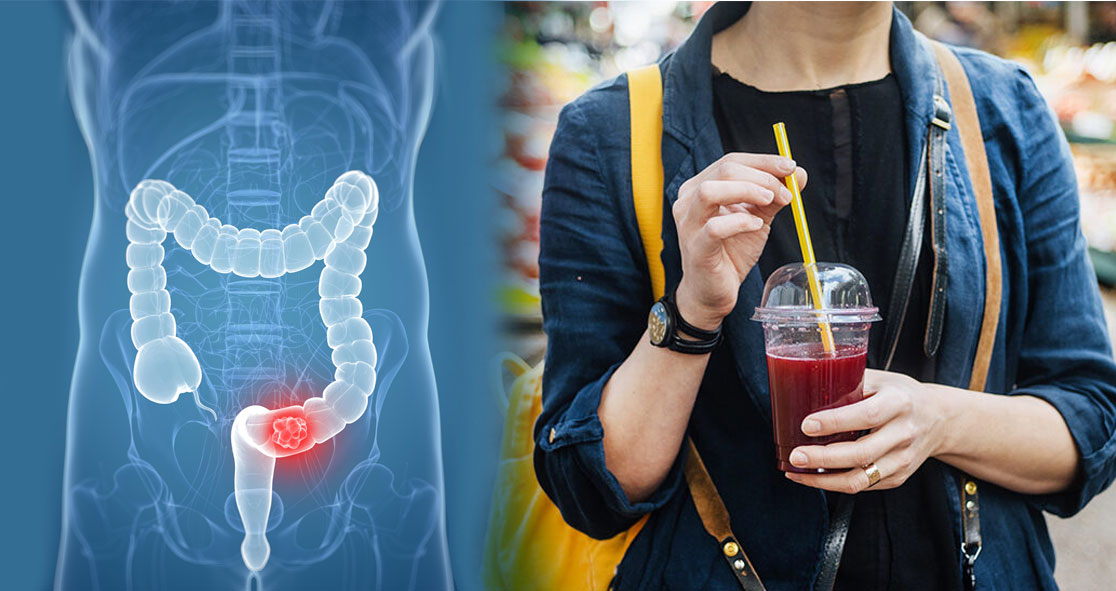A new study by the researchers of the Washington University School of Medicine in St. Louis has found a strong association between drinking sugar-sweetened beverages and an increased risk of developing colorectal cancer in women below 50.
The study, published Thursday in the journal Gut, suggests that daily or heavy consumption of sugar-sweetened drinks during adolescence and adulthood could increase the risk of colon cancer.
The findings provide more support for public health efforts that encourage people to reduce the amount of sugar they consume, according to Science Daily.
Senior author Dr. Yin Cao said, “Colorectal cancer in younger adults remains relatively rare, but the fact that the rates have been increasing over the past three decades – and we don’t understand why – is a major public health concern and a priority in cancer prevention.”
“Due to the increase in colorectal cancer at younger ages, the average age of colorectal cancer diagnosis has gone down from 72 years to 66 years,” she added. “These cancers are more advanced at diagnosis and have different characteristics compared with cancers from older populations.”
Dr. Cao explained, “Our lab is funded by the National Cancer Institute (NCI) and the National Comprehensive Cancer Network to identify risk factors, the molecular landscapes, and precision screening strategies for these cancers so that they can be detected earlier and even prevented. In past work, we have shown that poor diet quality was associated with increased risk of early-onset colorectal cancer precursors, but we have not previously examined specific nutrients or foods.”
The researchers found that women who drank two or more servings of sugar-sweetened beverages per day were two times more likely to develop early-onset colorectal cancer than those who drank less.
Consuming sugary drinks has been linked to metabolic problems, such as obesity and type 2 diabetes. However, there is less evidence about whether such high-sugar beverages could increase the risk of colorectal cancer in younger people.
Of late, early-onset colorectal cancer rates have increased. Also, the consumption of sugary drinks has increased over the last 20 years and the highest consumption levels have been found among adolescents and younger adults.
“Despite the small number of cases, there is still a strong signal to suggest that sugar intake, especially in early life, is playing a role down the road in increasing adulthood colorectal cancer risk before age 50,” Dr. Cao explained.
“This study, combined with our past work linking obesity and metabolic conditions to a higher risk of early-onset colorectal cancer, suggests that metabolic problems, such as insulin resistance, may play an important role in the development of this cancer in younger adults,” she added.
With the increasing incidence in colorectal rates, the American Cancer Society (ACS) has recently updated its guiltiness on colonoscopy screening, recommending people to get it at the age of 45, Previously, the recommended age was 50.
The new guidelines also say that people with additional risk factors, such as a family history of colon cancer, should get screened even before 45.
The researchers said further work is needed to determine the link in people of more diverse races, ethnicities, and genders.
Sugar-sweetened beverages were associated with an increased risk of early-onset colorectal cancer, but some other drinks such as milk and coffee were linked to a decreased risk.
The team said that replacing sugar-sweetened beverages with unsweetened drinks, such as coffee and milk, is a better choice for long-term health.
Dr. Cao said, “Given this data, we recommend that people avoid sugar-sweetened beverages and instead choose drinks like milk and coffee without sweeteners.” The article was published in Science Daily.





















